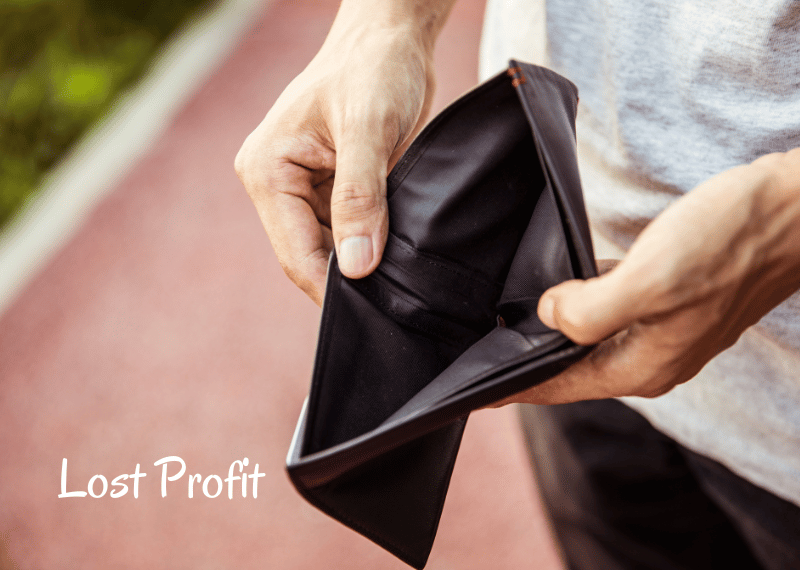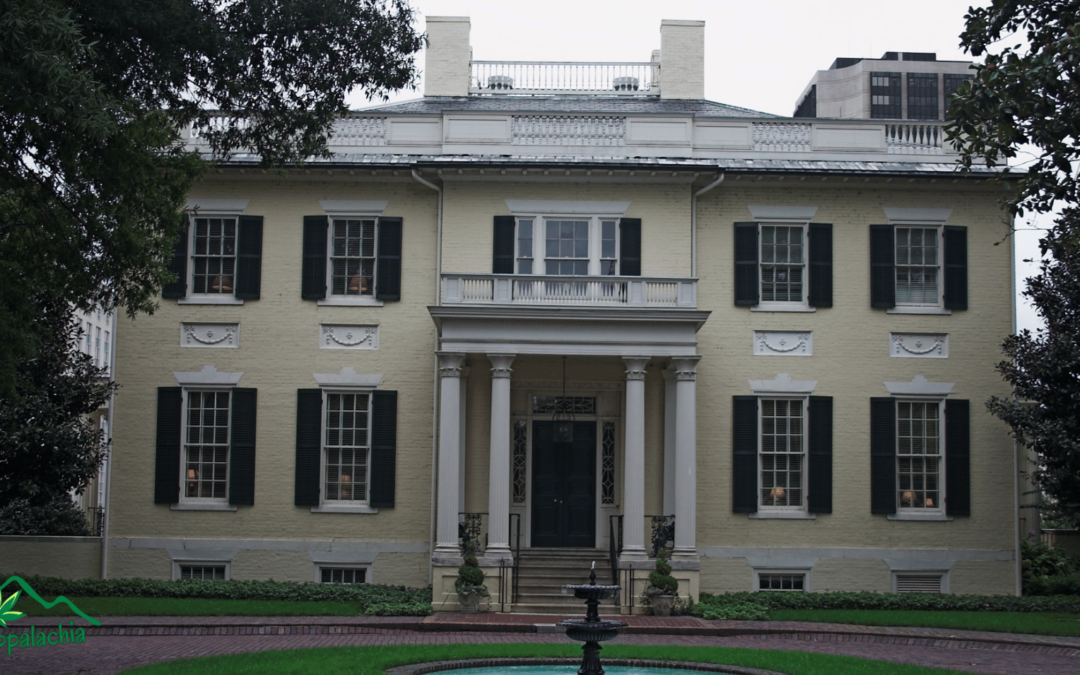In 2021, Virginia made a groundbreaking move by legalizing adult possession and personal cultivation of cannabis. However, the state has stalled in creating a legal retail distribution system for recreational cannabis, largely due to Governor Youngkin’s resistance to moving forward. This regulatory inaction has had profound consequences: an emboldened black market, the proliferation of unsafe and moldy cannabis products, and inadequate legal dispensary coverage. The resulting challenges highlight the urgent need for a regulated cannabis market in Virginia, not only to safeguard public health but also to capitalize on the economic and social benefits of legalization.
The Thriving Black Market In Virginia
The absence of a legal retail system has inadvertently fueled Virginia’s cannabis black market. Despite legalization, consumers have limited legal options for purchasing cannabis. This gap has created an opportunity for unregulated sellers to dominate the market. In fact, a 2022 report by the Cannabis Policy Alliance estimated that black market cannabis sales in Virginia outpaced legal medical sales by nearly fivefold.

Economic Impact
Virginia is losing out on significant tax revenue due to this thriving underground economy. States like Colorado and California have demonstrated the immense economic potential of a well-regulated cannabis market. For example, Colorado alone generated over $350 million in cannabis tax revenue in 2022, funding critical public initiatives such as education, healthcare, and mental health programs. Similarly, California’s cannabis market contributes billions of dollars annually to the state economy, with a portion of the revenue directed toward addressing issues like homelessness and drug abuse prevention.
A 2020 report from Virginia’s Joint Legislative Audit and Review Commission, as highlighted on VPM, projected that a fully regulated cannabis market in Virginia could generate between $609 million and $1 billion annually in its fifth year. This potential revenue represents a transformative opportunity for the state. These funds could support infrastructure development, bolster underfunded school districts, and provide resources for community programs. Instead, this potential remains unrealized, as the black market continues to dominate under the current regulatory vacuum.
Beyond tax revenue, the economic impact extends to job creation. States with regulated cannabis markets have seen significant growth in employment opportunities, from cultivation and manufacturing to retail and compliance. A regulated market in Virginia could create thousands of jobs, particularly in economically distressed regions. Additionally, the introduction of ancillary businesses—such as security, transportation, and marketing—would further stimulate local economies.
By delaying the establishment of a legal cannabis distribution system, Virginia is not only losing out on direct financial gains but also missing an opportunity to stimulate broader economic growth. The black market boom, fueled by Governor Youngkin’s inaction, continues to drain resources that could otherwise be reinvested into the state’s future.
Public Safety Concerns
The black market also poses significant risks to public safety. Illegal sellers are not bound by regulations that ensure product safety or restrict sales to adults. Consequently, minors can more easily access cannabis through illicit channels. The lack of a safe and legal distribution system, a direct result of Governor Youngkin’s unwillingness to act, has created an environment where public safety is jeopardized.
The Proliferation of Unsafe, Moldy Products
One of the most alarming consequences of Virginia’s unregulated cannabis market is the prevalence of unsafe, untested products. Unlike legal markets in states such as Oregon or Illinois, where stringent testing requirements ensure product safety, Virginia’s black market offers no such guarantees.
Health Risks from Contaminants
Cannabis sold on the black market is often contaminated with mold, pesticides, and other harmful substances. Recent research from Manchester Metropolitan University and Curaleaf Clinic revealed that 90% of street cannabis in the UK—a pattern mirrored in U.S. black markets—was contaminated with mold, yeast, lead, E. coli, and salmonella. Such contaminants can cause respiratory, neurological, and gastrointestinal issues (New York Post).
In Virginia, moldy cannabis has become a significant health concern. A 2023 investigation by Virginia’s Department of Agriculture revealed that 40% of cannabis products seized from illicit sellers contained unsafe levels of mold or heavy metals, according to reporting from The Guardian. Mold contamination poses a particular risk to immunocompromised individuals, while heavy metals can have long-term health impacts.
Pesticide Contamination
A recent study published in the Journal of Cannabis Research highlights the stark contrast between regulated and unregulated cannabis markets. The research found that 92% of black market cannabis samples contained multiple pesticides, while only 6% of regulated products tested positive for such contaminants (Marijuana Moment). Pesticides can cause acute poisoning symptoms and chronic health issues in frequent consumers.

The Danger of Synthetic Cannabinoids
The black market has also been linked to the distribution of synthetic cannabinoids, which are significantly more dangerous than natural cannabis. A study by the University of Bath found that seven out of ten vaporizers sold as cannabis products actually contained synthetic cannabinoids such as 5F-MDMB-PICA. These substances are linked to severe health effects, including seizures and fatal overdoses (The Guardian).
In a regulated market, rigorous testing ensures that cannabis products are free from harmful contaminants. Labels provide detailed information on THC and CBD content, serving sizes, and potential allergens, empowering consumers to make informed choices. The lack of such safeguards in Virginia leaves consumers vulnerable to serious health risks. This ongoing threat is a direct consequence of Governor Youngkin’s refusal to establish a safe and legal cannabis distribution network.
Inadequate Dispensary Coverage
Virginia’s medical cannabis program currently operates with a limited number of licensed dispensaries, which primarily serve registered patients. The lack of a recreational retail market further exacerbates accessibility issues, particularly in rural and underserved areas.
Access Challenges in Rural Areas
Many Virginians must travel long distances to access legal cannabis products. For example, residents in the southwestern regions of the state often face hours-long drives to reach the nearest dispensary. This disparity disproportionately affects individuals with limited mobility or financial resources, forcing them to rely on the black market.
Missed Opportunities for Consumer Education
Dispensaries in regulated markets play a crucial role in educating consumers about safe and responsible cannabis use. Trained staff can provide guidance on product selection, dosing, and potential side effects, helping consumers avoid adverse outcomes. The lack of adequate dispensary coverage in Virginia deprives residents of these valuable resources, increasing the risk of misuse and negative health effects.

Lessons from Other States
Virginia can look to other states for guidance on establishing a regulated cannabis market. Colorado, for instance, implemented a robust retail system within two years of legalizing recreational cannabis. The state’s model includes comprehensive testing protocols, clear labeling requirements, and a well-regulated supply chain, ensuring both consumer safety and economic success. In 2022 alone, Colorado generated over $350 million in cannabis tax revenue, much of which was reinvested in public education and mental health programs.
Similarly, California’s efforts to combat its black market include lowering tax rates for licensed retailers and creating incentives to transition to legal operations. These measures have helped to gradually shift consumer demand toward the legal market, demonstrating the importance of balancing regulation with accessibility.
The Path Forward: Establishing a Legal Distribution System
To address the challenges posed by the black market, unsafe products, and inadequate dispensary coverage, Virginia must prioritize the establishment of a regulated cannabis market. The following steps are crucial:
- Develop a Comprehensive Regulatory Framework Virginia should establish clear guidelines for licensing, production, and retail sales. This framework should include stringent testing requirements to ensure product safety and labeling standards to empower consumers.
- Expand Dispensary Access Increasing the number of licensed dispensaries, particularly in rural and underserved areas, will make legal cannabis more accessible to all Virginians. Mobile dispensaries or delivery services could also help bridge the accessibility gap.
- Highlight the Public Safety Threat Public discourse should focus on the dangers created by Governor Youngkin’s refusal to act. By emphasizing the risks of moldy products, synthetic additives, and the black market’s accessibility to minors, advocates can build a stronger case for regulation.
- Public Education Campaigns Educating the public about the risks of black market cannabis and the benefits of regulated products is essential. Campaigns should focus on health and safety, responsible use, and the economic advantages of supporting the legal market.
Conclusion
Virginia’s failure to establish a legal cannabis distribution system, driven by Governor Youngkin’s reluctance to act, has had far-reaching consequences. From the rise of the black market to the proliferation of unsafe products and inadequate access to dispensaries, these issues represent a public safety crisis of the administration’s making. By learning from the successes and challenges of other states, Virginia can create a regulated market that prioritizes public health, safety, and economic growth. The time to act is now—before the black market becomes further entrenched and the potential benefits of legalization are lost.


0 Comments